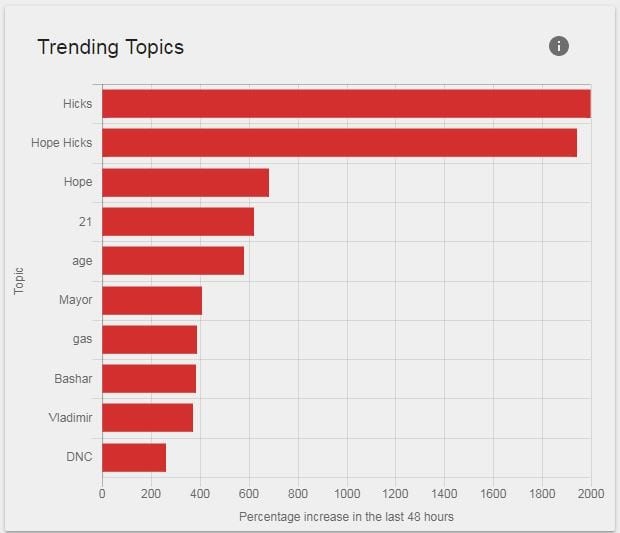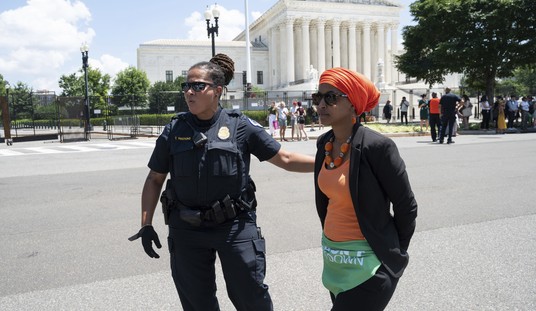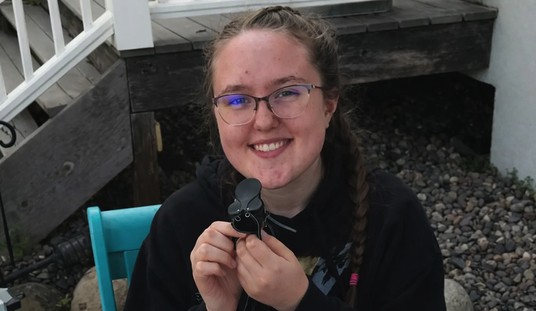
The go-to site for those people obsessed with finding Russian Twitter bots under their bed or hiding in their medicine cabinet is a site called the Hamilton 68 Dashboard. This is the site that was used to convince the incredulous, Russia-obsessed never-Trump crowd that it was Russia that was demanding that the White House release the Nunes memo and that it was Russia pushing back against the gun control narrative after the shooting at Marjory Stoneman Douglas High School.
After the success of the #ReleaseTheMemo campaign, Russian-influenced Twitter accounts are test-running other hashtags designed to stoke anger—particularly among Trump supporters—against so-called 'deep state' forces, according to analysts at Hamilton 68. https://t.co/xeNPPTlTof
— Kyle Griffin (@kylegriffin1) February 11, 2018
I’ve addressed this nonsense directly, but now BuzzFeed is on the case.
By now you know the drill: massive news event happens, journalists scramble to figure out what’s going on, and within a couple hours the culprit is found — Russian bots.
Russian bots were blamed for driving attention to the Nunes memo, a Republican-authored document on the Trump-Russia probe. They were blamed for pushing for Roy Moore to win in Alabama’s special election. And here they are wading into the gun debate following the Parkland shooting. “[T]he messages from these automated accounts, or bots, were designed to widen the divide and make compromise even more difficult,” wrote the New York Times in a story following the shooting, citing little more than “Twitter accounts suspected of having links to Russia.”
This is, not to mince words, total bullshit.
Do you know who else thinks it is bullsh**? One of the founders, a guy named Clint Watts:
“I’m not convinced on this bot thing,” said Watts, the cofounder of a project that is widely cited as the main, if not only, source of information on Russian bots. He also called the narrative “overdone.”
The dashboard monitors 600 Twitter accounts “linked to Russian influence efforts online,” according to its own description, which means the accounts are not all directly traced back to Kremlin efforts, or even necessarily to Russia. “They are not all in Russia,” Watts said during a phone interview last week. “We don’t even think they’re all commanded in Russia — at all. We think some of them are legitimately passionate people that are just really into promoting Russia.” So, not bots.
So a) the accounts aren’t necessarily in Russia nor b) affiliated with the Kremlin nor c) even bots.
Haha, what? So Hamilton68, which so many journos like to cite on Russian bots, tracks 600 Twitter accounts, many of which might not even be Russian. https://t.co/y8Txb0jAqi pic.twitter.com/wsvwOSQcq4
— Chuck Ross (@ChuckRossDC) March 1, 2018
Mollie Hemingway at The Federalist:
Natasha Bertrand, a reporter who facilitates messages from Fusion GPS, the group that authored the infamous Russia dossier on behalf of the Clinton campaign, wrote a piece headlined “Russia-linked Twitter accounts are working overtime to help Devin Nunes and WikiLeaks.”
Her story and many others uncritically accept and promote a secretive group’s unverified claim of a Russian conspiracy. The Alliance for Securing Democracy runs an operation called Hamilton 68 that it claims tracks Russian bots, though it’s impossible to assess the claim because of the group’s methodology. The advisory council for the alliance includes NeverTrump stalwarts such as Bill Kristol and David Kramer, the man Sen. John McCain sent to London to pick up the discredited Russian dossier from Christopher Steele.
Hamilton 68’s claim — later refuted by Twitter and Facebook — formed the entire basis of Schiff’s theory that it was Russian bots, not real Americans, who wanted to learn about FISA abuse by the FBI. Asked to respond to Hamilton 68’s claim, Twitter responded, “Because the Hamilton Dashboard’s account list is not available to the public, we are unable to offer any specific context on the accounts it includes.” They added, “We have offered to review the list of accounts contained in the Dashboard and this offer remains open.”
In other words, Hamilton 68 won’t let anyone review their dashboard to determine in any way if they’re tracking actual Russian propaganda bots, or just conservative Americans who, for instance, care about FISA abuse. Yet Hamilton 68’s claims are repeated uncritically by a media that asks no questions about the methodology.
Oh, and d) we’re not allowed to see which accounts they monitor or their methodology.
https://twitter.com/seanmdav/status/969219087984455680
This is some research tool guys.
Yesterday I pointed out the astounding, overnight propaganda success of "Hamilton68," the secretive group created last year by Bill Kristol, Marco Rubio's guru, CIA officials & Dem hawks that the US media, almost daily, uncritically uses to shape headlines. Today's NYT front page pic.twitter.com/b3uJqMtLss
— Glenn Greenwald (@ggreenwald) February 20, 2018
Back to BuzzFeed
So that’s strike one: In what other world would we rely on a single source tool of anonymous provenance?
And then there’s strike two. Let’s say, despite that, you still really want to put your faith in those conclusions about Russian influence. Why would you do that? Twitter is actually clogged with bots — and has been for years — so taking a major vulnerability of the platform and using it to tidily explain something murky and complicated is appealing. Add to that the fact that Russia really did run an operation to meddle in the US election, hacking the DNC, running real propaganda campaigns, and deploying trolls to mess with the discourse. The discourse at times seems like an attempt to keep the attention on Russia, more than anything else. Everyone seems to want to believe that Russian trolls are ruling the internet.
And here we get to strike three. One of the hardest things to do — either with the accounts “linked to Russian influence efforts online,” whatever that means, or with the Internet Research Agency trolls who spent many months boosting Donald Trump and denigrating Hillary Clinton — is to measure how effective they really were. Did Russian troll efforts influence any votes? How do we even qualify or quantify that? Did tweets from “influencers” actually affect the gun debate in the United States, already so toxic and partisan before “bot” was a household word?
Even Watts thinks the “blame the bots” shtick has gotten out of control. “It’s somewhat frustrating because sometimes we have people make claims about it or whatever — we’re like, that’s not what it says, go back and look at it,” Watts said. “There are certain times when it does give you great insights, but it’s not a one-time, I look at it for five seconds and write a newspaper article and then that’s it. That doesn’t give you any context about it.”
And this is the clincher to the Russian bot story:
Further complicating the Russian bot narrative? The notion that plenty of automated social media influence campaigns are orchestrated right here in the United States. As BuzzFeed News has reported, MicroChip, “a notorious pro-Trump Twitter ringleader,” has and continues to orchestrate automated networks of Twitter accounts to help push trending topics and advance pro-Trump narratives. And when, after the election, Columbia Tow Center for Digital Journalism professor and researcher Jonathan Albright set out to find the most influential political bot account, he didn’t end up in Saint Petersburg, but Chicago. “I ended up proving that the most influential account through the last week of the 2016 election (across every major election-related hashtag) was a 68-year-old guy [named Daniel John Sobieski] in a basement,” Albright told BuzzFeed News. “He had two accounts, both top five in my group of bots, and his tweets were getting between 20 and 30 millions impressions on Twitter every 24 hours.”
The story made the front page of the Washington Post in early 2017 and detailed that Sobieski, who spent his pre-Twitter days writing letters to the editor, tweeted prolifically during the days and let an automated account do the talking at night. To dismiss him as solely a bot is to ignore part of the story. “‘Omg that 68-year-old blind dude who posts with a 5,000-strong automated patriot Twitter sock-puppeting group that can make things trend in 15 minutes stole the election’ is more like it,” Albright said.
This is the ridiculous and the insidious part of the story. There are actually people who think most people care about what is said on Twitter. Twitter, hold on to your hats for a truth bomb, does not replicate real life. I have never, ever heard someone say “I read this really great idea on Twitter that has changed my views on a subject.” Why? Because that person doesn’t exist. The insidious part of the story is that morons have access to this dashboard, morons who have never had a logic class and actually believe that if one of these alleged bots is saying something and you are saying the same thing, then that means you are acting under the influence of a Twitter account.
It is scary that those people are allowed to walk about without an armed guard and a shock belt.
From the way it was formed to the secrecy of its "methods" to the blatantly false assumptions on which its claims rest, "Hamilton68" is probably the single most successful media fraud & US propaganda campaign I've seen since I've been writing about politics. It's truly shocking.
— Glenn Greenwald (@ggreenwald) February 22, 2018
In case you’re interested this is what the Russians are interested in today, so you just might acting under their influence according to Hamilton 68:














Join the conversation as a VIP Member